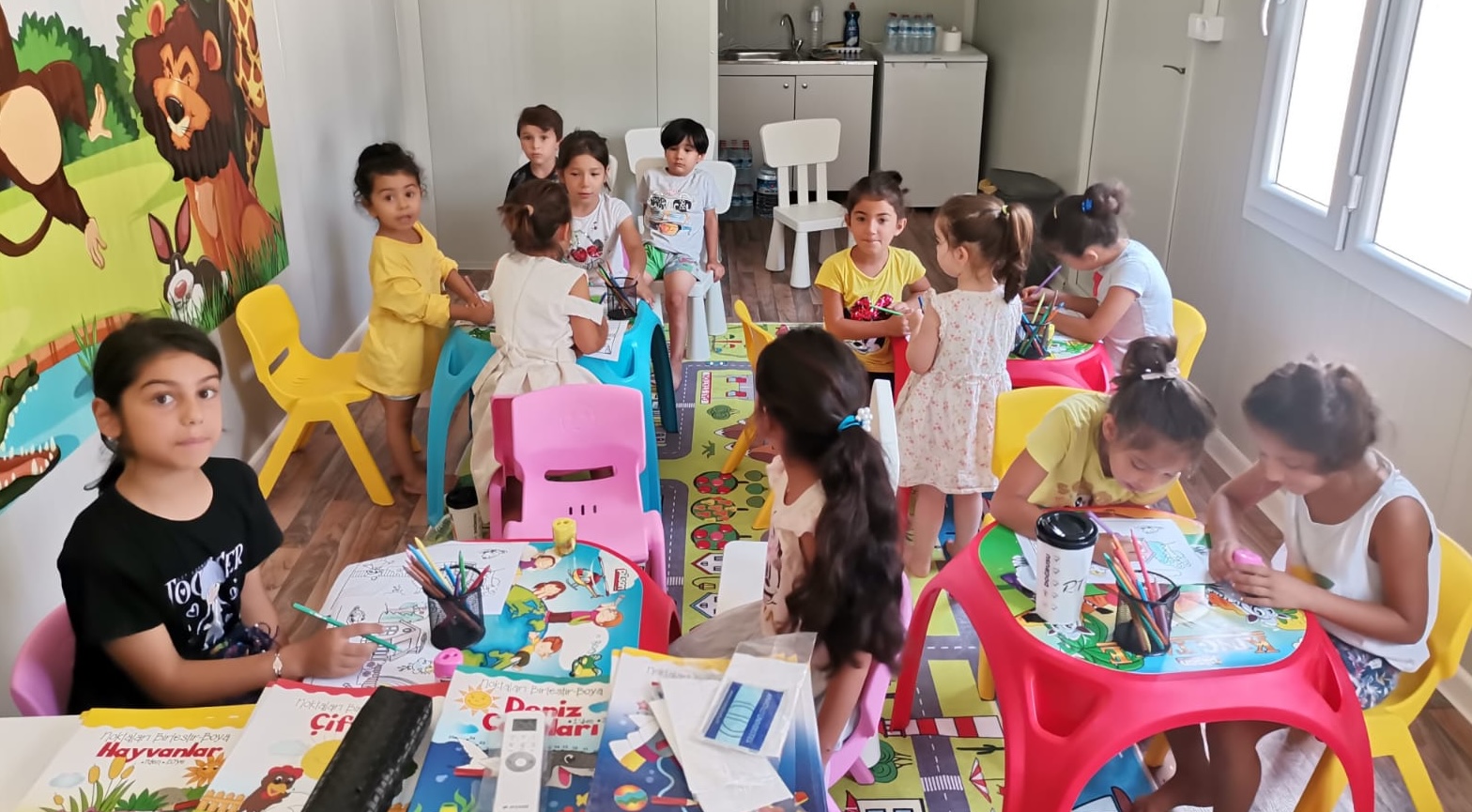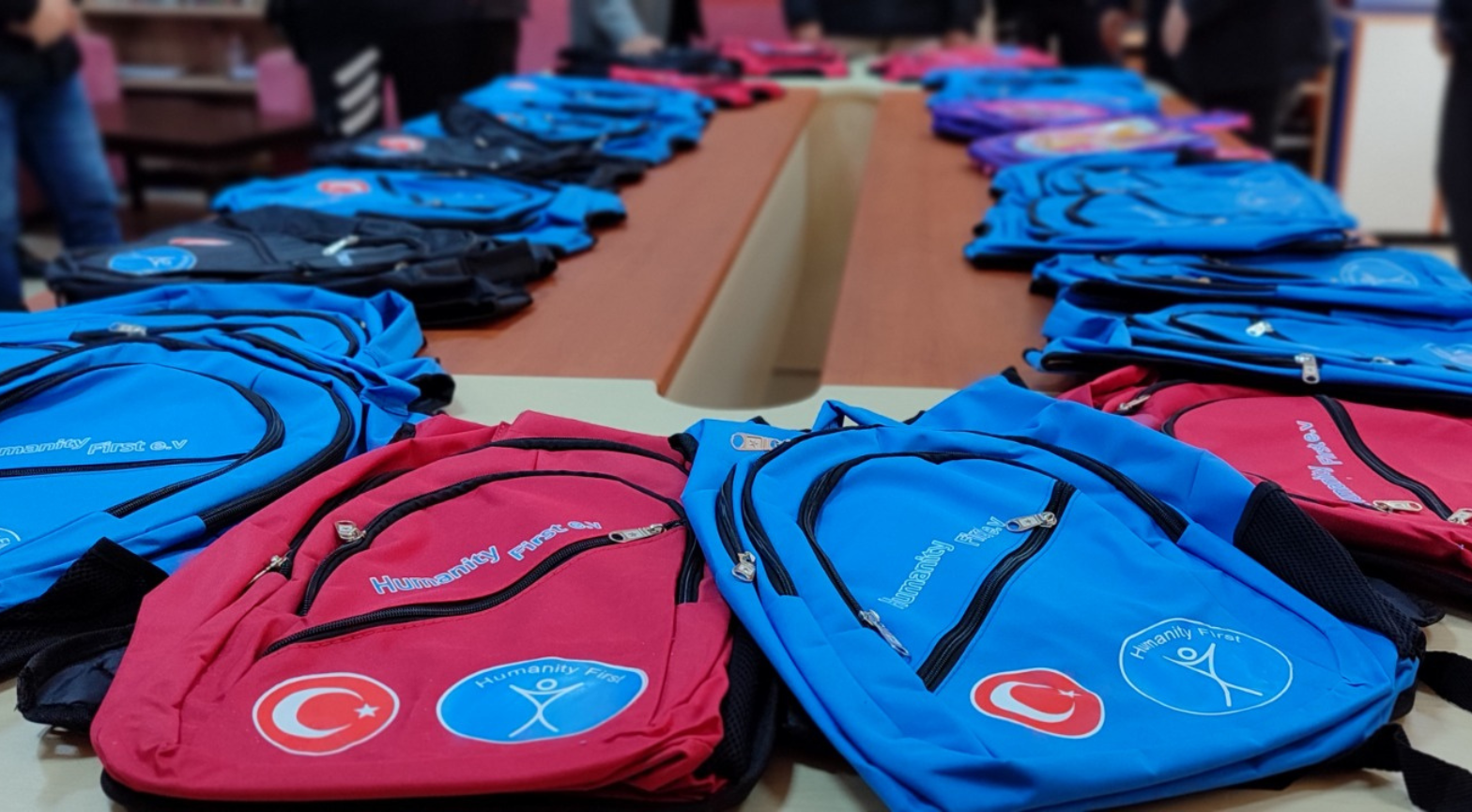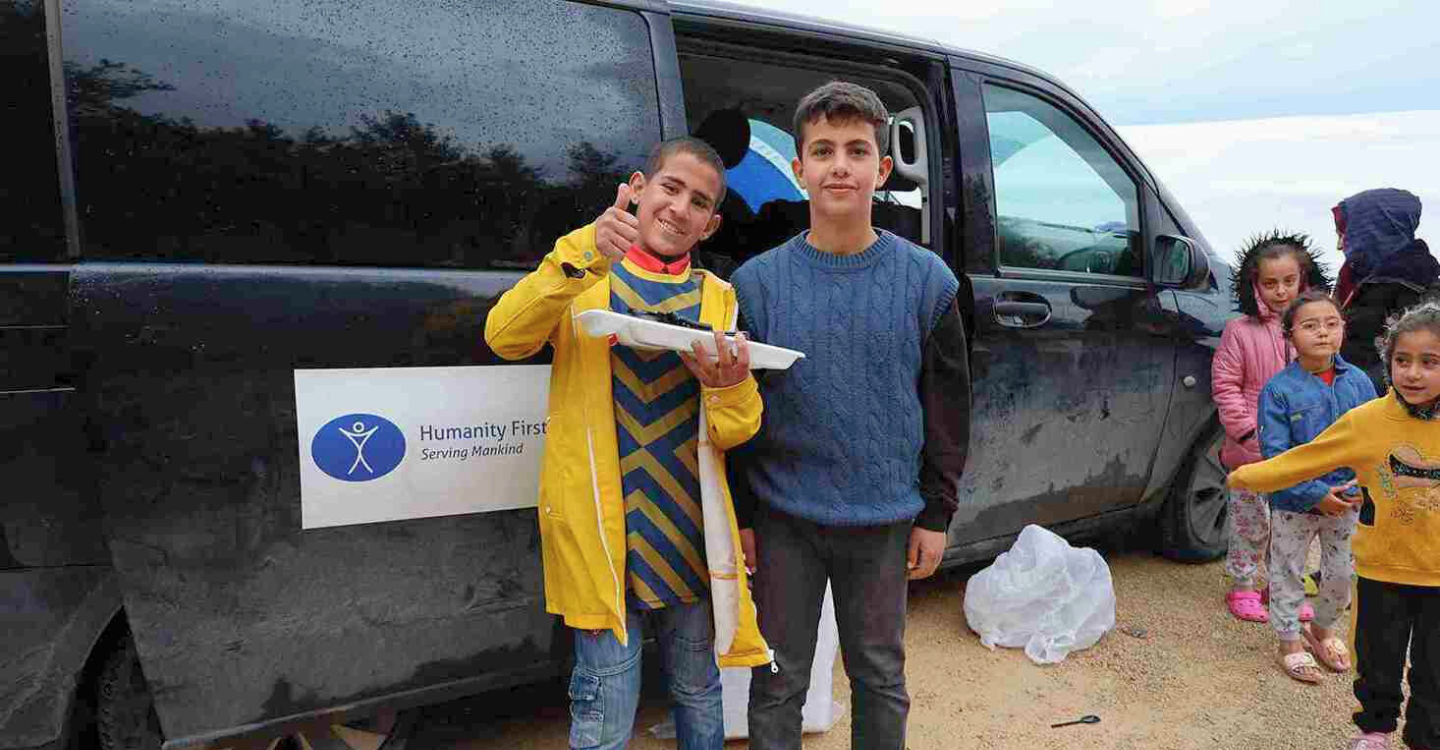“At one point, I noticed an elderly lady motioning and hinting that she needed more. I said ‘of course’ and filled her bowl with another big spoonful and added some more bread. I don’t speak Arabic, but…. She gave me a long prayer of which I caught just the one word – jannah – which means paradise. Every time I think about it to this day, I feel overwhelmed.”
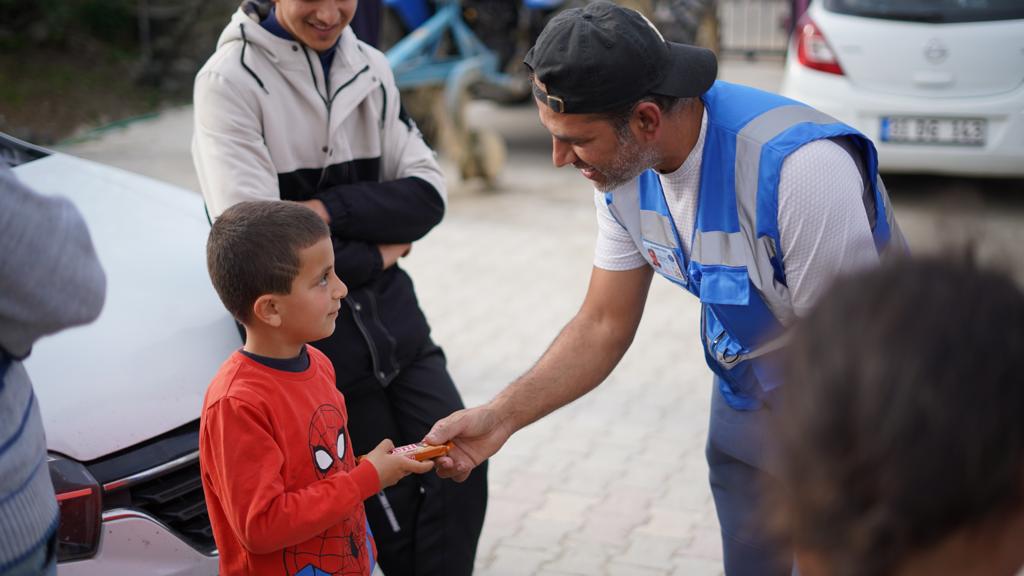
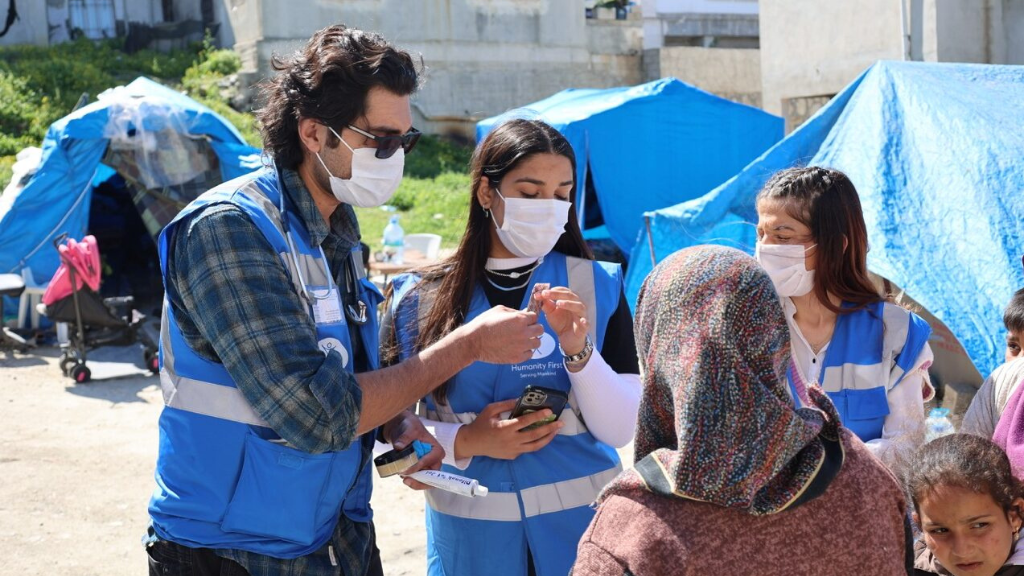
What was your and your team’s relief work like while you were in Türkiye?
NA: We started at a banquet hall where the Turkish Red Crescent handed off their food operations to Humanity First – all thanks to the generosity of the owner of the hall. As we cooked and served food there, we began to learn of nearby camps, and one by one new locations were added until we were transporting food to 5, then 7 locations. In the hall we would cook in pots that could accommodate food for 2,000 people. We would cook up to three of those pots and then split into teams to take the food to the camp sites in smaller pots with sealed lids. Our day began at 4:00 am or 5:00 am to deliver breakfast by 8:00 am. Then we would do the same process for dinner, and the full day would finish about 1:00 am.
AS: I was in Türkiye for about one week, and Humanity First doctors from the U.S. and other countries also came in the weeks before and after me. Each day, we led mobile camps where we had four Humanity First cars loaded with medical supplies, and we went from camp to camp. We split into teams and had three interpreters accompany us as we provided medical care.
The Humanity First global team was organized under HF Germany, and this was the first time I had met anyone on that team. I was very impressed by their organization of the volunteers and the work. We had two Americans, two Germans, and from the UK came two doctors and a pharmacist. We all aligned on our shared goal, and we still stay in touch.
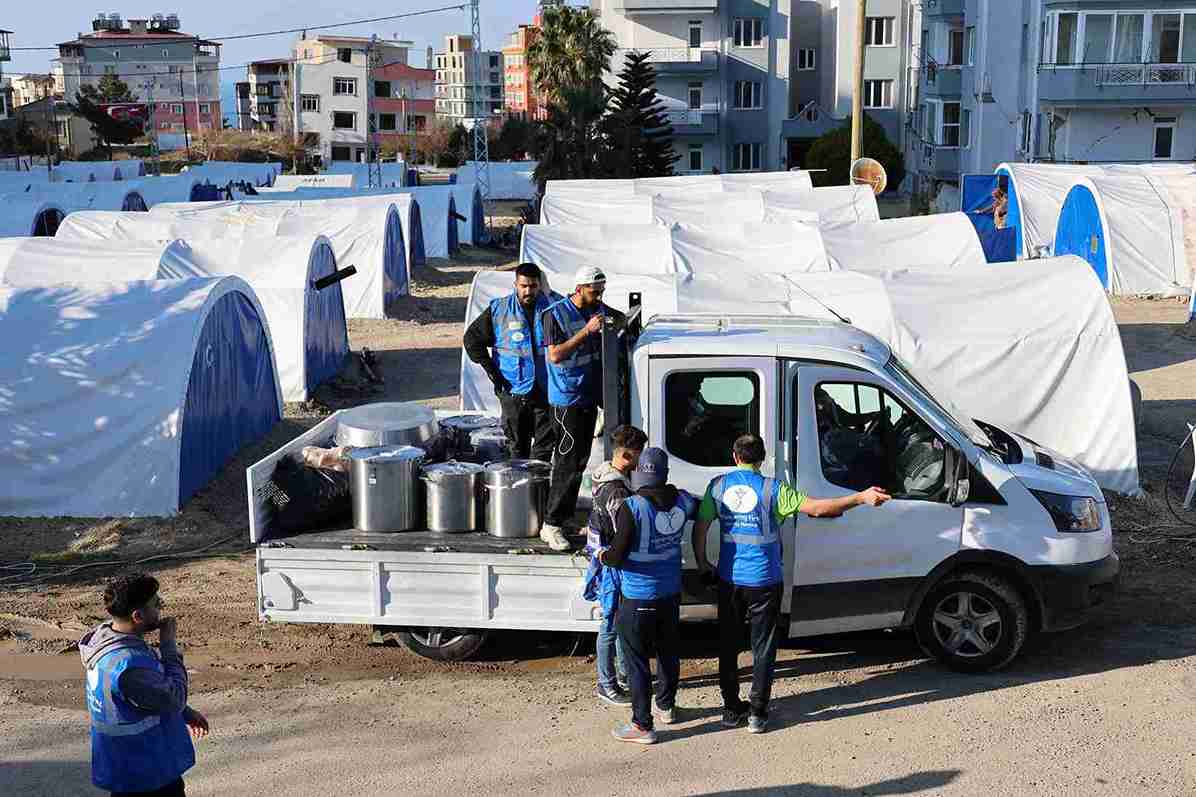
Many of us, thankfully, have not been to the site of a large earthquake. What was the scenario that met you in Türkiye?
NA: The only time I’ve seen something remotely close was viewing a demolition of a building on TV, whereas here, 90% of the buildings were empty because they had massive cracks, or the buildings had crumbled. They were uninhabitable. Anywhere there was a flat area, like a parking lot, people had put up a tent.
AS: What really captured my attention was a level of devastation I have never experienced in my life. Cities were completely destroyed – it almost felt like a post-apocalyptic scene.
We went to a town right near the Syrian border, so there were a lot of Syrian refugees. Their conditions were bad. They fled conflict in their country, and then devastation followed them, and they lost everything again. A teenager with a foot injury came to the clinic. As I was dressing his wound, I asked him through the interpreter how he was doing. He hesitated, but opened up to share that neither of his parents made it out of the collapsed building, so he lost them. The suffering after this earthquake was at many levels of emotional trauma as well as physical trauma.
Sometimes as healthcare workers, as doctors, we think that we have seen trauma. We see it on a daily basis. But this level of devastation and its impact on human life, it really took me a step back and took me some time to recover from, actually. It will stay with me for the rest of my life.
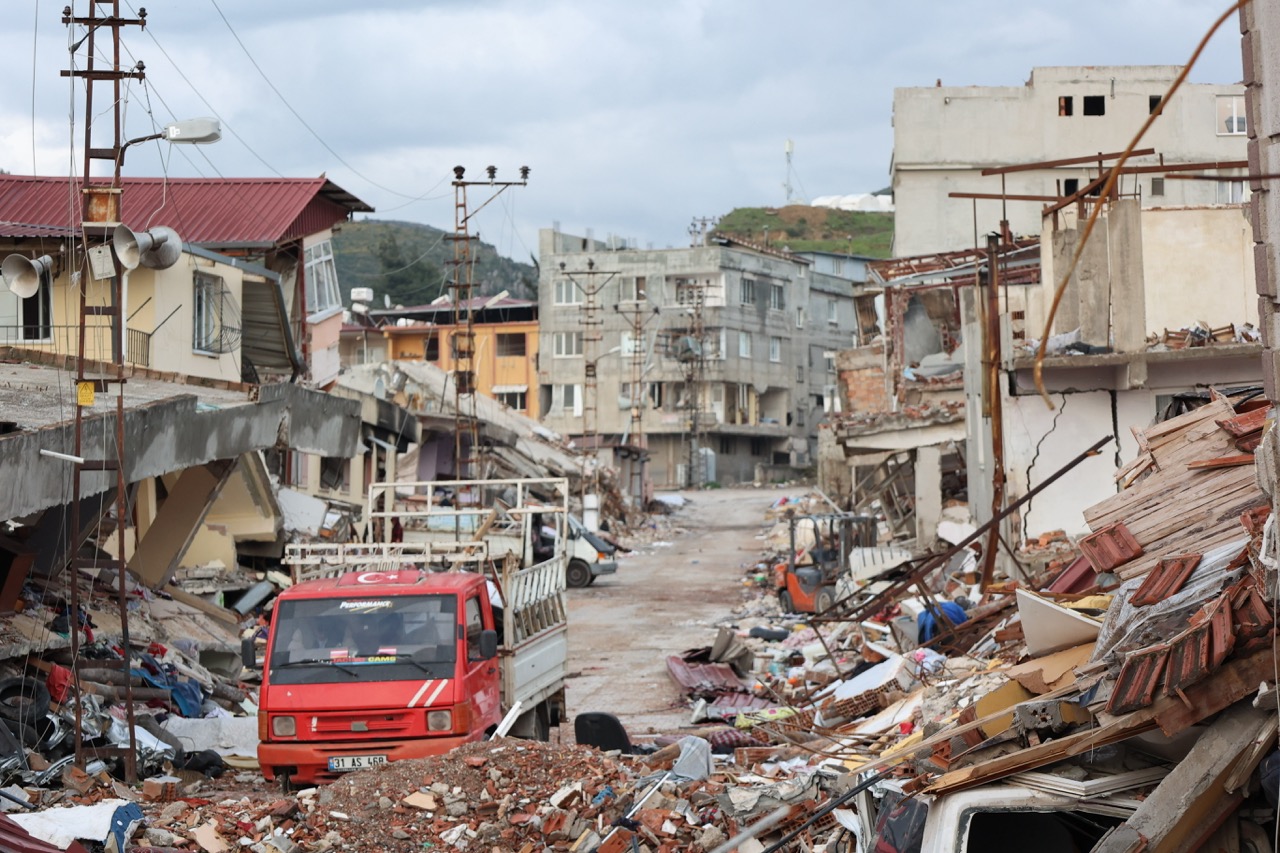
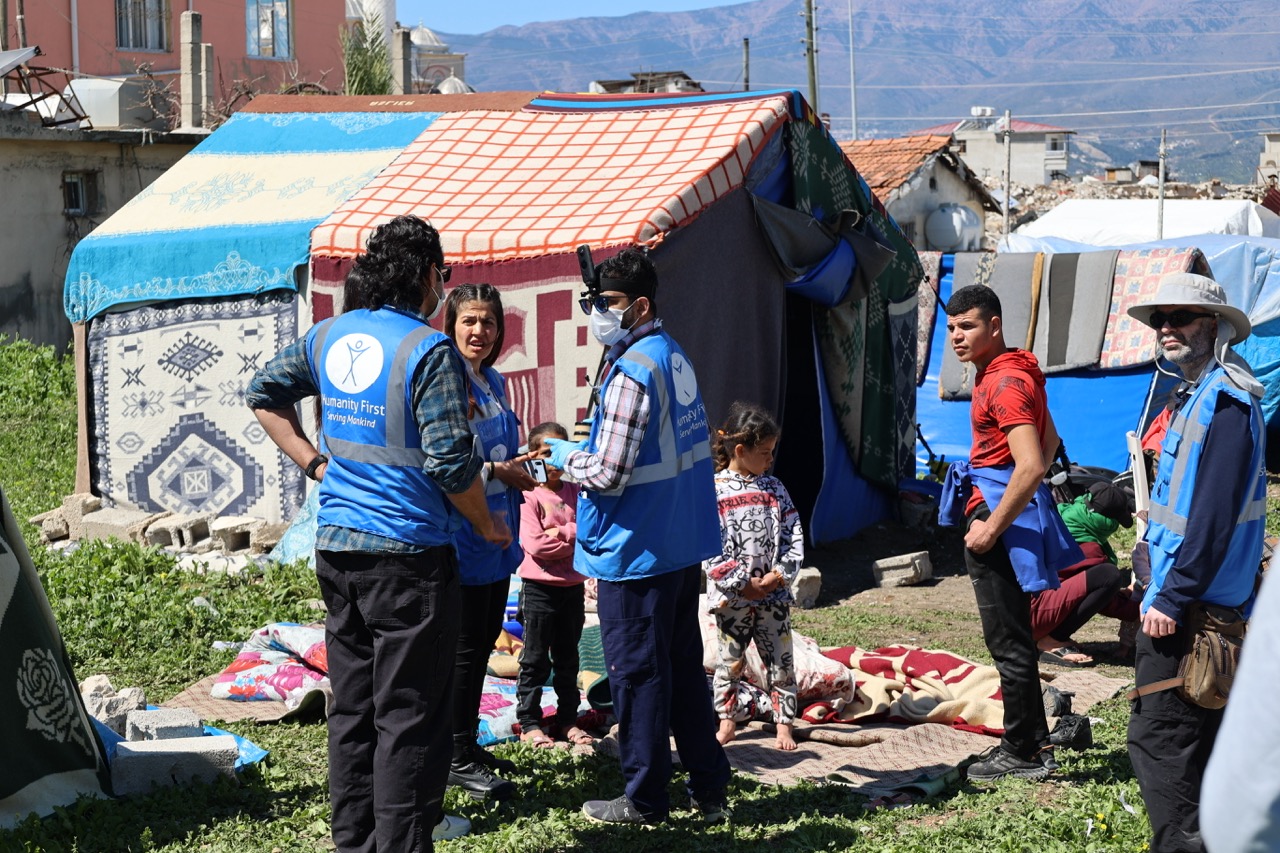
Tell us about some of the people that you met.
AS: As we drove up to a location to start the medical camps, the kids would swarm around the cars or the volunteers asking for items or treats. But their mothers would quickly come by and nudge them into line, reminding them to wait their turn and be courteous. Even in devastation they kept their values.
NA: Each person would come to get their daily meals with bowls and plastic Tupperware containers that we had provided, or they had acquired from elsewhere. People would make a line and we would pour food for them. At one point, I noticed an elderly lady motioning and hinting that she needed more. I said “of course” and filled her bowl with another big spoonful and added some more bread. I don’t speak Arabic, but there was a look of joy on her face, she was almost in tears, and she was almost overwhelmed which made me and our team also overwhelmed. She gave me a long prayer of which I caught just the one word – jannah – which means paradise. Every time I think about it to this day, I feel overwhelmed.
AS: One of our Turkish interpreters, an English teacher, told us that she was buried for over 10 hours after the quake. She lost her home and belongings, but when she was rescued the first thing that came to her mind was that she wanted to serve. When she heard there was an opportunity for volunteers with us, she jumped in. To see strength in such destruction was inspiring.
“…if this happens again, I will answer the call with Humanity First.”
Responding to the acute phase of relief following this earthquake was critical and grueling. How do you see Humanity First’s role and what the future holds?
AS: Recovery is going to take a long time. I am not an expert in this, but there were cities that had no habitable buildings or even no standing buildings at all. I still get some text messages from our interpreters. People have moved to more stable structures after the tents that everyone was in when we were there, but it will take decades.
NA: There were so many people who needed support and so much to do to clean the rubble, take care of people, and manage aid. The government focused on many complex issues while Humanity First and other humanitarian organizations took care of feeding and administering health care for thousands of people. Humanity First set up some additional supports – like a children’s elementary school facility – as well.
Within a few months we were able to hand off the work to city officials when they were in a position to carry it forward. We were humbled to see video recordings for us of government officials expressing deep appreciation for this help. Since then, their work continues for the country to rebuild.
AS: Years back as an undergraduate student, I came to know Dr. Qureshi (the current leader of Disaster Relief for both HFUSA and HFI) and others, and I was inspired by them even at that time. I told myself that if I have the capacity one day, I would like to do the same as them. I endorse Humanity First and the work that we do, from disaster relief to providing clean water to operating Nasir Hospital. And if this happens again, I will answer the call with Humanity First.
Nouman Ahmad is an IT professional and also the Director of Food Preparation for both the HFUSA and HFI Disaster Relief teams. He joined the food preparation teams during our response in both Ukraine and Türkiye. Dr. Ahsan Shah is a hematologist oncologist and practices internal medicine. He has volunteered with HF after Hurricane Ian in Florida and the earthquake in Türkiye.
Post Script: HF Germany continues to lead recovery efforts in these same areas of Türkiye. The school in Belen is now part of a 300-family container city managed by the local government. The government is also running new skills training workshops for women, and HF donated all the needed supplies.
In another area, HF and the Turkish Red Crescent recently partnered with the district police office to gift 150 school bags to local children. Photos courtesy of HF Germany.
